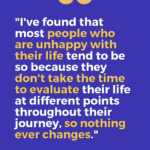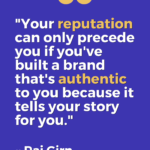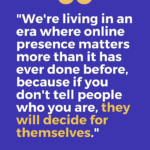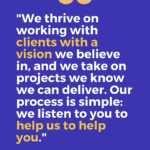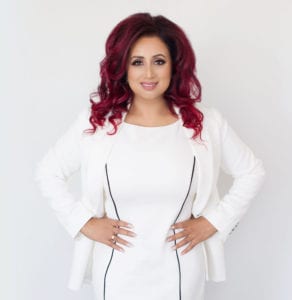“Whether you think you can or you can’t – you’re right.”
~ Henry Ford, Founder , Ford Motor Company.

Hi Friend,
The idea that our thoughts and beliefs govern our actions is a concept that most of us have experienced with positive and negative outcomes throughout our lives. The positive ones oftentimes allow us to expand the opportunity of what we think is possible. And the negative ones oftentimes come because we don’t think that we can do or be something. It’s this notion of limiting beliefs that I want to unpack a bit this week.
A real moment . . .
I have had a lifelong relationship with limiting beliefs in my personal and professional life, which has had me riding back and forth on the see-saw of “yes I can” to “no one will believe that I can.”
We all know that our opinions of ourselves have had a lot to do with what we were conditioned to believe in, in our formative years, compounded by people’s opinions of us over the years, amplified by society’s various manmade infrastructures (religion, caste, class, gender, race etc.), that are designed to either lift us up or hold us down (depending on what side of the fence you’re on). There’s no wonder then, that we live in an age of chronic depression and mental health challenges, because everyone has something to say and inflict on each other, which teaches us that we too must do the same to ourself and to others, so the cycle continues, as does the negative impact on our mental health.
Let’s look at the age demos that society has created to illustrate this point – the Zoomers, Millennials, Gen-X, and Boomers (which range from 9 to 65+ years old). There has never been a time in recorded history, where there has been such a distinct line in the sand between age groups in terms of characteristics and what motivates themto do (or not do) something. If you place them into the work environment and look at Maslow’s Hierarchy of Needs – physiological, safety, love and belonging, esteem, and self-actualization – this is what I’ve seen through my experience as a CEO, who has (and continues) to work with many of these age groups (so don’t quote me on the research out there, as I’m coming at this completely from an experiential perspective):
- Boomers were taught to focus on the first two stages, which addressed physiological and safety first (emphasized through the infrastructure created during the Industrial revolution).
- Gen-X added the third stage, where the focus included love and belonging (the movies of the 80’s leaned heavily into the exploration of relationships with self and others – ‘Pretty In Pink’, ‘The Lost Boys’, etc.).
- Millennials moved the dial to focus on the fourth stage, which is the need to accomplish esteem (oftentimes referred to as a sense of entitlement, where they believe that everyone deserves to have certain things given to them by society, rather than them having to earn it like the previous two age groups were taught to believe). Social media is what has given them this right of passage.
- Zoomers start their journey at self-actualization, where they believe that they deserve the best and shouldn’t have to compromise their individuality in the process, (which has brought to the surface movements like ‘Me Too’ and ‘BLM’, and a real collective demand for social responsibility, inclusivity, and representation at work and in society).
The key takeaway here is that in order to squash limiting beliefs, we have to ease up on beating ourselves up over beliefs that limit our individual expression, because without that exploration, positive progression for the collective is always going to be slow or even a moot point. I believe that the human experience has been chocked at the neck by a “one size fits all” infrastructure that religion, culture, social, economic, (etc.) ideologies have boxed us into believing, to tie us to one narrative, rather than allow us to grow in the direction that our soul is calling us to experience, thus being narrative-free.
Without individual experience, there is no growth. Without individual growth, there is no collective acquisition of lived experience that we can share with each other to move through Maslow’s Hierarchy of Needs in one lifetime, rather than in piecemeal across many generations – and still not get there, because each generation’s focus is one-dimensional, therefore, incomplete. This incompletion is what has birthed this notion of ‘limiting beliefs’, where manmade infrastructures are taking us on one journey, while our soul yearns to go on many.
I have journeyed far and wide to educate myself on limiting beliefs (specifically), because they have continuously jolted me with the intention of holding me back, with narratives that conventional wisdom has set me up to believe, that as a BIPOC woman, who is a single parent, with minimal academic education, I shouldn’t have accomplished the things that I have. Rather, I should have failed at life; but I didn’t!
If you’re looking to explore your mindset around limiting beliefs, contact me here: [email protected] and I’ll help you strategize the best way to move forward, because I know that I can – because I’ve been you!
This week’s takeaway:
“ . . . incompletion is what has birthed this notion of ‘limiting beliefs’, where manmade infrastructures are taking us on one journey, while our soul yearns to go on many.”
~ Raj Girn
See you next week . . .

